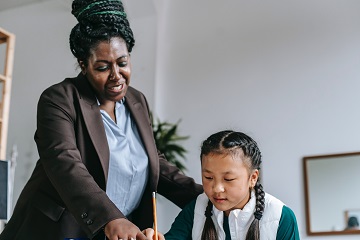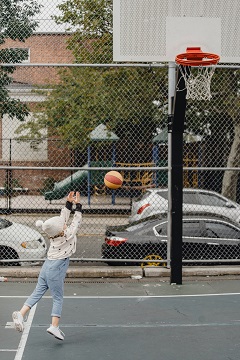DON’T JUDGE THE STUDENTS’ ABILITY ON THE BASIS OF THEIR PERCENTAGE
– Lugina Miranda

In a group session students were expressing their anguish over the reaction of people after hearing their results. “When we can’t score high percentage we only worry about what to say to our parents, teachers, friends, neighbors and most importantly our relatives. Most of them will be so curious to know what our percentage is. Our worst nightmare is when they pass insensitive comments, criticize and compare with other top scorers. They jump into conclusion that we are not capable to achieve anything in future. We feel let down and doubt our ability and loose our confidence. We hate anyone who asks us, “What’s your percentage?” We need them to respect our privacy by not asking about our results.” During our session I could see the students looking more apprehensive.
Adding to their turmoil some of the famous tutorials admit students those who score high. It’s easy to coach them and get into fame rather than teaching students who score less. Some Parents will be angry on their ward for not scoring high and some will be disappointed as if that is the end. Finally students are confused and are left out.

Having scored high marks, some students were not satisfied. Geetha was very confident that she would score above 95% in 10th STD. But she got 92% in her results. Geetha was very disappointed. So she hid herself inside her house to avoid people asking her – ‘what’s your percentage?’
Some will go to the extent of ending their life since they are unable to face parents, relatives and society and their judgment.
One has to remember that only academic performance is not sufficient for a successful life. Overall development is very important. Average students may not be top scorers instead they become good leaders and top performers.
Average students can be helped through guidance and counseling.
It is essential to build their self esteem and confidence levels and motivate them to improve their academic performance. The students must be made aware of their strength and helped to work on those strong points. Also identify the cause for their low performance and help the students to work on those areas.


The parent should not take away the interest that a child loves and succeeds in. This may be sports, music, art or any other activity. To say that a child can’t do this until there has been some improvement at school is a sure recipe for disaster and the resulting sense of deprivation and frustration will lead to even less achievement.
Many times parents and teachers are not able to recognize gifted children, because these children will often get bored by the level of academic work given to them and academically they may not perform well. But these gifted children are usually physically very active, have high intellectual capacities, varied interests and are generally inquisitive. Unfortunately a number of gifted students are not recognized at school and their giftedness is never allowed to come to the limelight.

Things to Remember:
1. Every student differs in abilities, interests, personalities and ambitions
2. Each student has the potential for success in a large number of different occupations.
3. Childhood and adolescence experience play some role in the interest we develop.
4. It is essential to build the child’s self confidence and independence.
5. Allow the child to make real decisions and live with the consequences.
6. The child must not be compared with others because each child is unique.
7. The child must never be lectured or nagged. Do not pressurize the child into doing something which the child is not interested.
8. Relationship with the child must be based on mutual respect and trust.
9. Allow the child to work at their area of ability.


Children will not turn into achievers overnight. It takes time and careful planning of integrated program across the curriculum. Each child differs in abilities, interests, personality and ambitions. Each student is capable of achieving the best of his/her ability.
